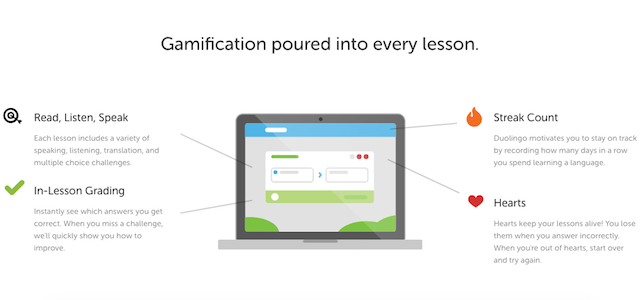Pearson and DuoLingo Partner on Foreign Language Education
Pearson and DuoLingo have partnered in an effort designed to help college and university students learn foreign languages.
DuoLingo offers small foreign language lessons through a gamified experience. Users can earn points for correct answers, participate in timed challenges, lose hearts until they have to start over for wrong answers, and keep track of how many days in a row they have spent time working on their language skills.

Through the partnership, students at participating institutions will be able to access personalized learning tools built on Pearson content through the DuoLingo platform. The courses will be aligned to the content in Pearson's digital texts and print materials and available to students on iOS or Android devices as well as through the internet.
"Duolingo is a fantastic out of class supplement to any foreign language curriculum," said Anna Szawara, a lecturer at the University of Illinois at Chicago, in a prepared statement. "It engages students in a variety of language practice modalities and supports their language learning progress."
"Through our partnership with Duolingo, we will combine complementary expertise to increase access to highly personalized and mobile language learning experiences," said Paul Corey, managing director for higher education courseware at Pearson, in a news release. "Our shared goal is to help improve students' academic performance while preparing them for today's global workforce and opportunities that require multilingual skills."
Courses in Spanish, French, German and Italian will be supported beginning this fall.
For more information about DuoLingo, visit duolingo.com.
About the Author
Joshua Bolkan is contributing editor for Campus Technology, THE Journal and STEAM Universe. He can be reached at [email protected].